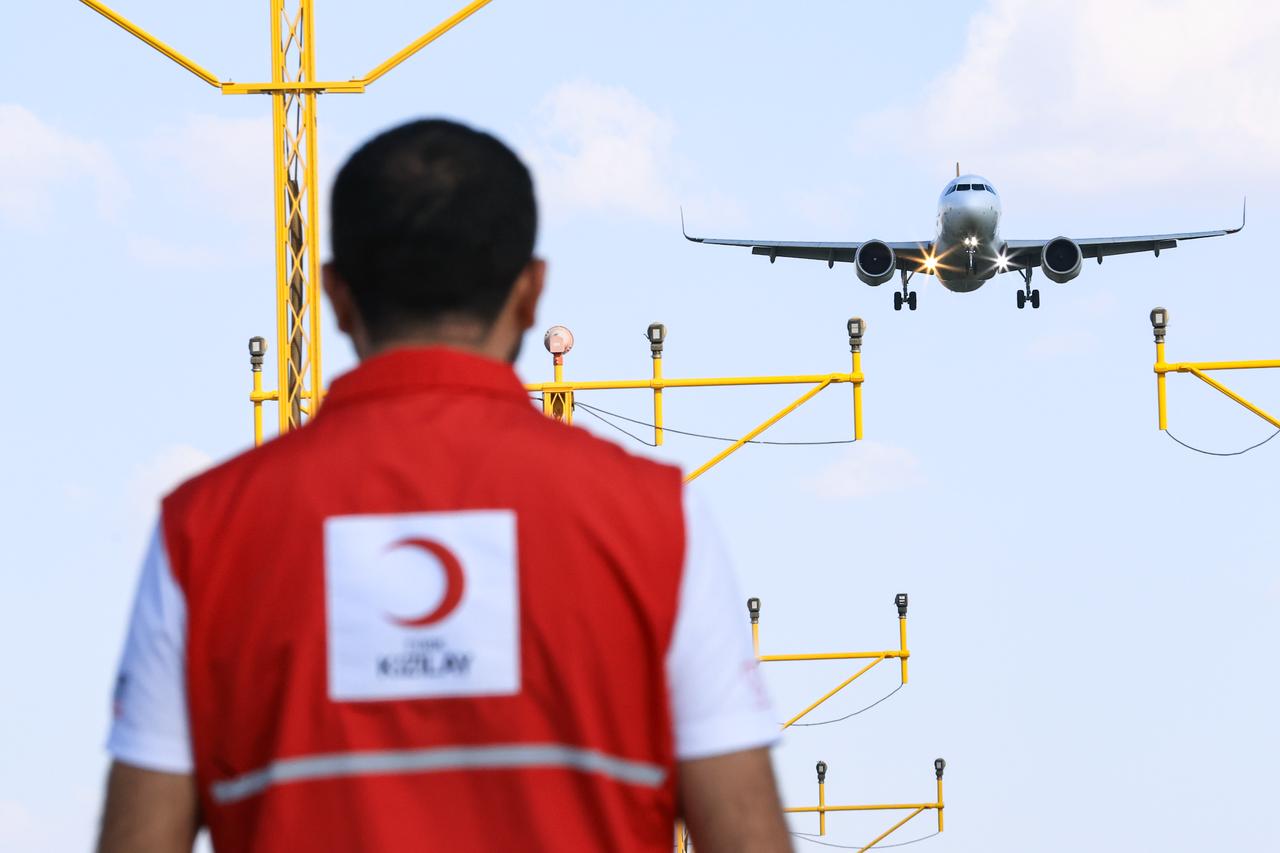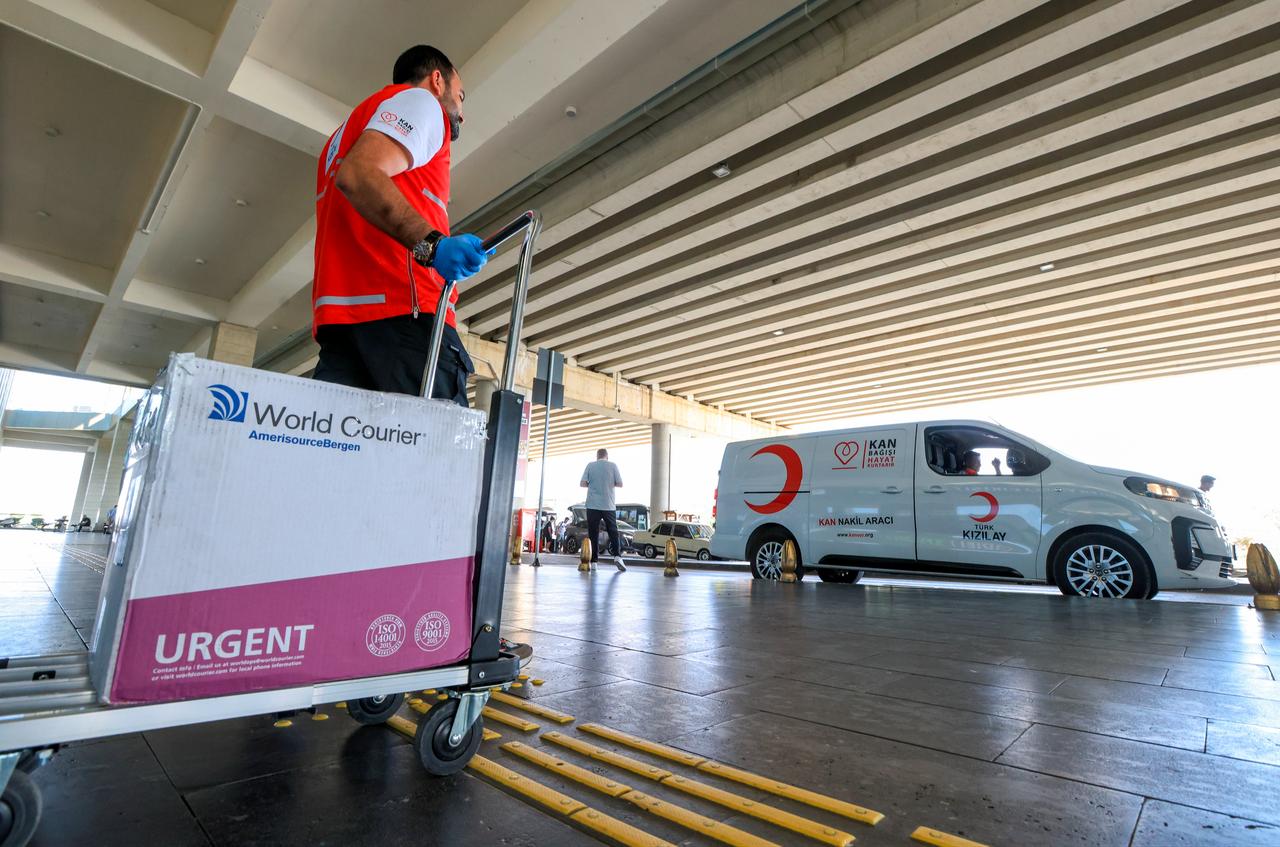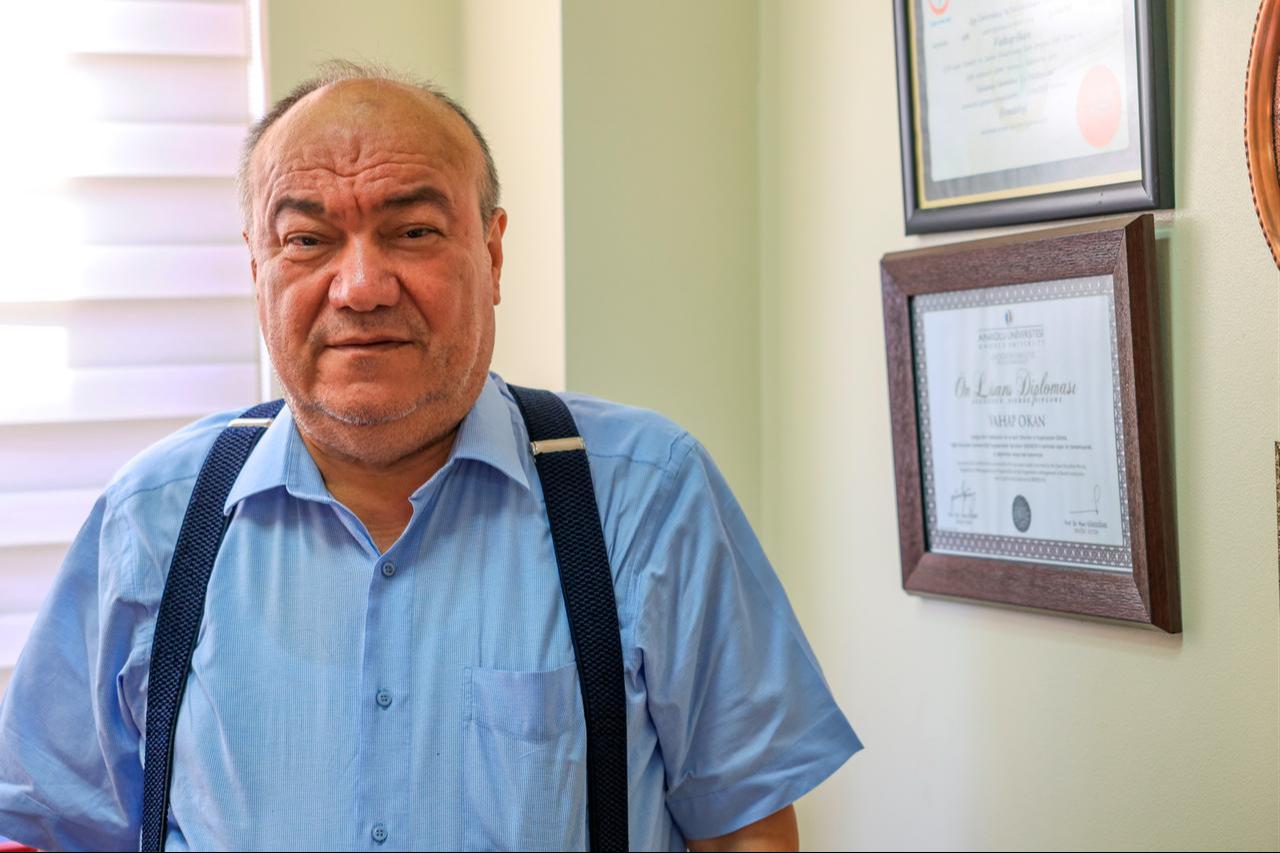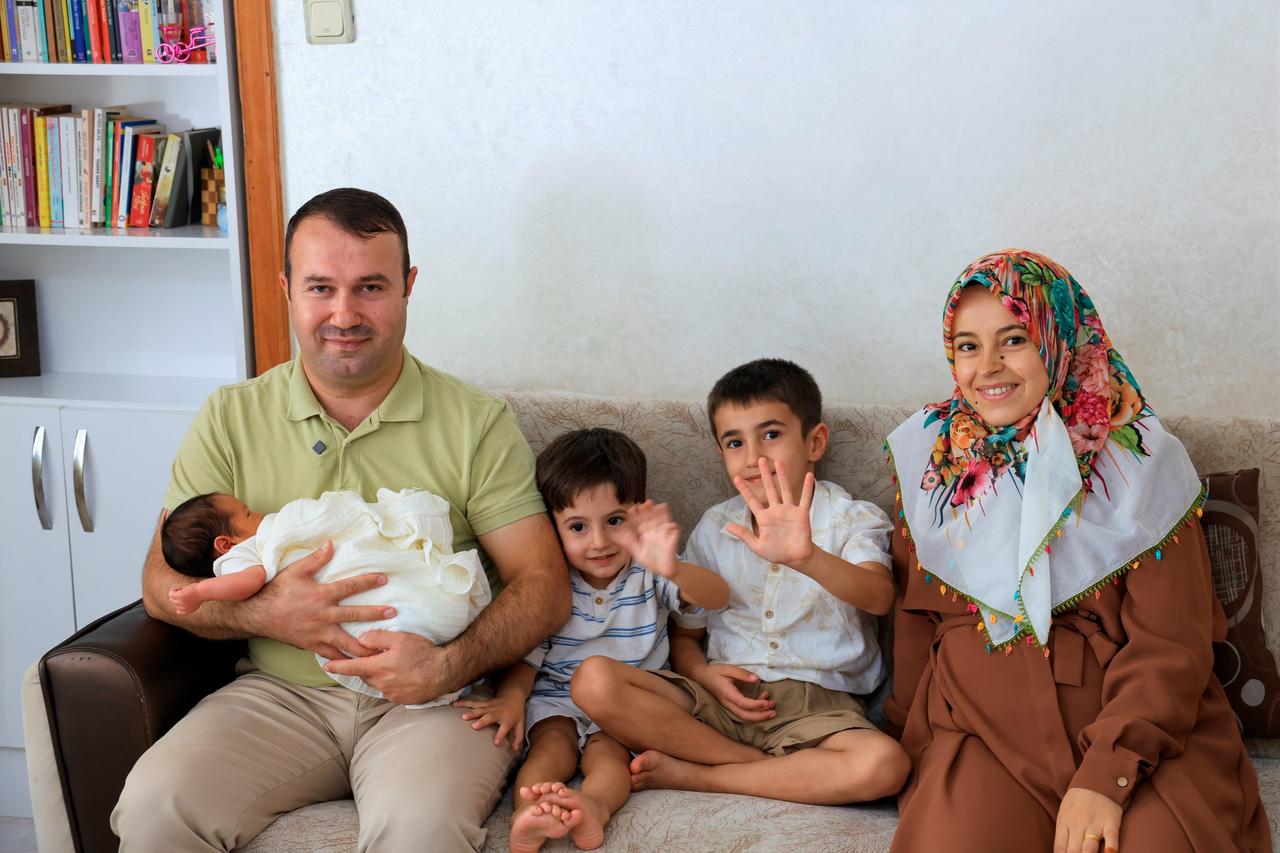
A 30-year-old mother and her newborn survived life-threatening complications through an international blood transfer of Rh-null, the world's rarest blood type found in only one in six million people, marking the first such transfusion in Türkiye.
Naide Soylu from Gaziantep province discovered during her third pregnancy that she carried Rh-null blood, known as "golden blood." When complications arose at seven months, doctors warned both she and her baby might not survive without matching blood.
"My mother, father, siblings — we all went together that day. They all gave blood, but none of it matched mine. Even my children's blood wasn't the same. That's when I began to be really afraid," Soylu said.

The International Rare Donor Panel located three compatible units in Spain — two frozen and one from a registered donor. The Turkish Red Crescent coordinated an urgent transfer under strict cold-chain conditions to Istanbul, then to Gaziantep.
The mission became a race against time as thawed units remain viable for only 72 hours.
The shipment left Spain on Sept. 3 and reached the hospital's transfusion center early Sept. 4, with the first unit administered soon after.
"I was terrified I might give birth but never hold my child. I had lost all hope until the news came from Spain. The transfusion saved me, and I realized how vital even a single drop of blood can be," Soylu said.
The transfusion stabilized Soylu and allowed doctors to deliver her child safely. The second unit followed that afternoon and the third the next morning.
Dr. Vahap Okan, who oversaw the delivery, explained the critical nature of the case: "This blood type can donate to anyone but can only receive from itself. Without it, both mother and baby were at serious risk. Fortunately, the matching blood was supplied quickly, and surgery was carried out safely."

Nazli Sozmen, R&D Manager of Blood Services at the Turkish Red Crescent, confirmed the significance: "This was the first time such a transfusion was carried out in Türkiye. Timing was critical, because once thawed, blood has only 72 hours."
Ahmet Soylu, the patient's husband, described the ordeal: "I had never heard of golden blood. Hearing my wife say she might not survive was terrifying. When we learned the blood was found in Spain, we felt such relief. Thanks to our doctors and the team, both are now safe."
For Soylu, the experience has been transformative: "It felt like a gift, a new life. From now on I will be more careful, because I know how rare my blood is. And I truly understood how important blood donation is. Even one drop can mean everything."

Rh-null means red cells lack all Rh antigens — more than 50 exist in the Rh system. Health systems report fewer than 50 known individuals worldwide with this blood type, first identified in 1961 in an Aboriginal Australian patient.
The International Rare Donor Panel maintains records of rare donors and frozen inventories from more than 27 countries, compiled by the International Blood Group Reference Laboratory in Bristol, U.K., part of NHS Blood and Transplant.